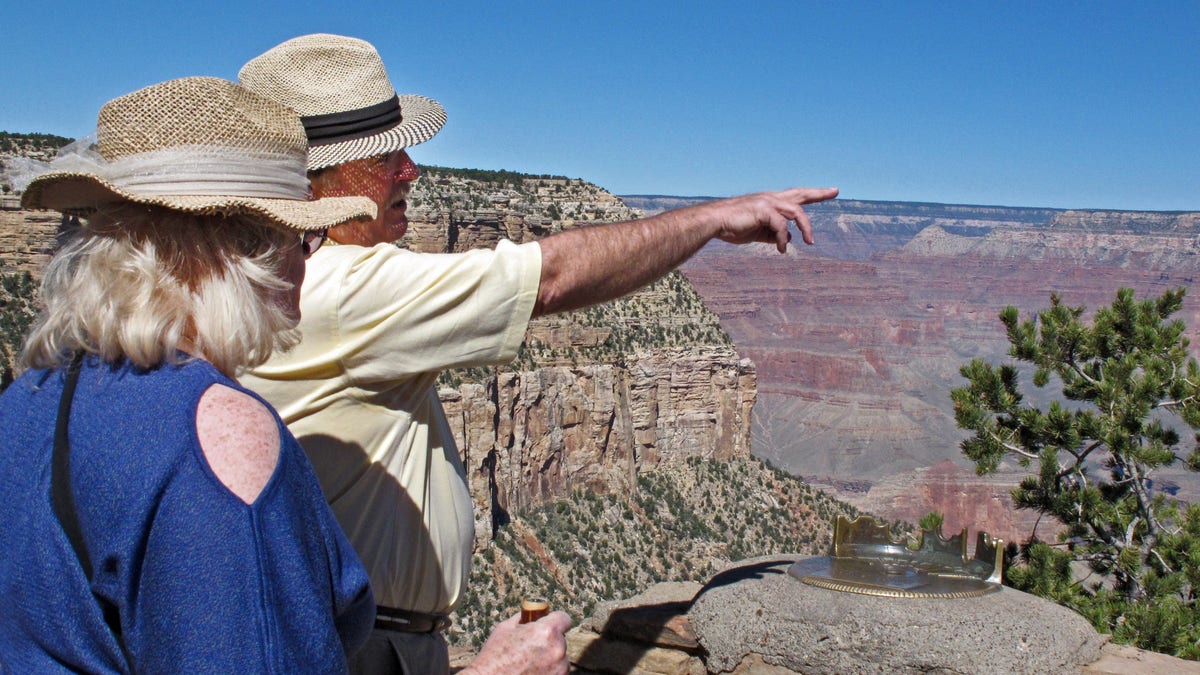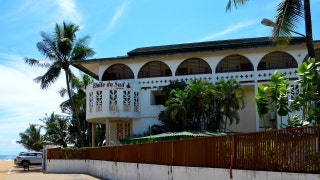
Karen and Tom Jacobs, of Carrollton, Texas, look out over the South Rim of the Grand Canyon on Monday, Sept. 30, 2013. (AP)
About 4.5 million tourists from around the world make the trip every year to the Grand Canyon National Park in northern Arizona, a trek that pours an estimated $1.3 million a day into nearby communities. The shutdown of the federal government has led the iconic park to be shut down for only the second time since it was created in 1919. Closed are roads, campgrounds, lodges, trails, overlooks and entry sites for rafting trips down the Colorado River through the gorge.
Happened Before
The shutdown that began Tuesday after Congress failed to pass a federal budget has happened once before, in 1995. That shutdown led then-Gov. Fife Symington to lead a convoy filled with Arizona National Guard troops and state parks officers to the canyon and demand its superintendent open the gates. The effort failed, but he was able to negotiate a deal where a partial reopening would be paid for by state funds. The federal government later repaid the state. The closure was the first since the park was created in 1919.
History Repeats Itself, Sort of
After Tuesday's shutdown, current Arizona Gov. Jan Brewer's staff called superintendent Dave Uberuaga and offered to find a way to pay for the park to be reopened. Businesses that run hotels and other business in the nearby town of Tusayan also offered to pony up cash to pay for park employees and other costs. As the former superintendent had in 1995, Uberuaga rejected the offer. He plans to stick to his guns, part of an Obama administration strategy of not accepting partial fixes for the budget impasse now gripping the nation. And Brewer has no plans to push further by forcing the issue. "This isn't 1995," Brewer spokesman Andrew Wilder said.
Impact
The National Park Service says 2,200 federal and private employees who work in the park are on furlough and the park will remain closed until the government reopens. October is a busy time of year at the park because of the cool weather, with an average 18,000 tourists visiting each day. Hotels, concessionaires, and tour operators are losing money by the hour. The Park Service says visitors spend more than $467 million a year in the communities around park, supporting nearly 7,400 jobs in Arizona.
Canyon Facts
The Canyon is in northwest corner of Arizona and was cut by the Colorado River, which courses along 277 miles of the canyon floor. The river has cut a gorge as deep as a mile into the surrounding plateaus and is up to 18 miles wide. According to the Grand Canyon Association, humans have continuously used the canyon and lived in the region for nearly 12,000 years. The area around the current national park was identified as a forest reserve and later as a national monument before gaining park status in 1919.








































